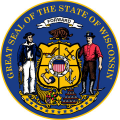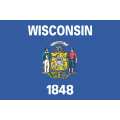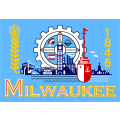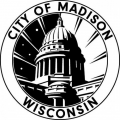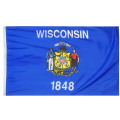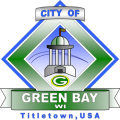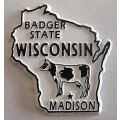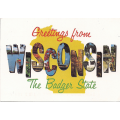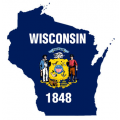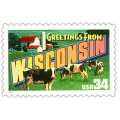For our 2024 rankings of LPN programs, the research team at Nursing Schools Almanac compiled an extensive database of student performance on the National Council Licensure Examination for Practical Nurses (NCLEX-PN). Aspiring practical nurses in the United States must pass this examination before they may commence practice. Thus, student performance on the NCLEX-PN exam provides an excellent benchmark for comparing the relative quality of practical nursing programs.
Wisconsin
We've organized a comprehensive list of Wisconsin nursing schools. Below you'll find information on specific nursing programs such as LPN certificates and ADN, BSN, and MSN degrees. You'll also find a profile of nursing education and careers in each major Wisconsin city.
Wisconsin nursing programs and careers
Wisconsin’s healthcare industry has boomed. Some estimates project that the state will see a double-digit increase in nursing jobs over the next decade. To support this growing sector, Milwaukee offers a number of state-approved nursing programs. Graduates can pursue employment at major local healthcare providers like Wheaton Franciscan Healthcare and Community Memorial Hospital. It is critical for prospective students to find the right program before embarking on their nursing careers.
The so-called "Twin Ports" of Duluth, Minnesota, and Superior, Wisconsin, are located along the western shores of Lake Superior. Together, they form a large metropolitan area of approximately 280,000 inhabitants. Aspiring nurses in the Twin Ports area can start their careers with a certificate, diploma, or degree from an accredited local nursing school.
Madison boasts a number of stellar colleges, including University of Wisconsin and Madison Area Technical College. These schools offer several certification options for students interested in joining the booming nursing industry. Before embarking on a career, prospective nursing students must select the appropriate program and complete the certifications required to practice.
Registered nurse
Private colleges are operated independently and do not receive their primary funding from the state government. They usually operate as non-profit organizations and invest heavily in the education of students. Due to their small class size, these colleges allow close interactions between professors and students. Outstanding students are often attracted to private colleges due to their generous financial assistance to those in need. Most importantly, many private colleges carry a significant level of historical prestige that opens doors during the job search.
Green Bay offers several accredited programs for students interested in pursuing a career in the city’s rapidly growing nursing sector. Aspiring nurses should begin by understanding the different nursing roles, the education pathway required for each, and the career trajectory that nursing graduates enjoy.
Nursing roles
The country’s rapidly growing healthcare sector is expected to create many nursing jobs over the next decade. Wisconsin already employs well over 100,000 nurses statewide, including 37,000 certified nursing assistants (CNAs), 10,000 licensed practical nurses (LPNs), and 56,000 registered nurses (RNs). These nurses work in a diverse range of healthcare settings, including local hospitals like Mayo Clinic and Froedtert Hospital. Wisconsin’s aspiring nurses must budget their educational expenses carefully and weigh the various options in order to maximize the return on this investment.
Public colleges and universities are state-supported institutions of higher learning. State (or county) residents enjoy lower tuition fees at public schools, which can drive considerable cost savings for students. Since public schools reserve a significant number of seats for local residents, the admissions process is often more accessible. Public colleges and universities also have diverse student bodies and large class sizes, providing a range of opportunities for students to pursue their interests.
Wisconsin public nursing programs
Wisconsin’s healthcare industry is growing at a blistering pace, with many exciting job opportunities for nursing graduates. The state has a breadth of nursing employers, including large networks like Maxim Healthcare and ProHealth Care. Prospective students must select one of three nursing career paths: certified nursing assistant (CNA), licensed practical nurse (LPN), or registered nurse (RN).
Nursing assistant
A master of science in nursing degree enables current RNs to expand their employment options into specialized tracks within the nursing field. This encompasses a large variety of careers including nurse midwife, family practice nursing, and nurse anesthetist. Some RNs who possess an MSN degree also choose to work in related fields like nursing education or nursing administration and management.
What are the benefits of earning an MSN?
For our 2024 rankings of prelicensure BSN programs, the research team at Nursing Schools Almanac compiled an extensive database of student performance on the National Council Licensure Examination for Registered Nurses (NCLEX-RN). Aspiring registered nurses in the United States must pass this examination before they may commence practice. Thus, student performance on the NCLEX-RN exam provides an excellent benchmark for comparing the relative quality of bachelor’s degree programs.

